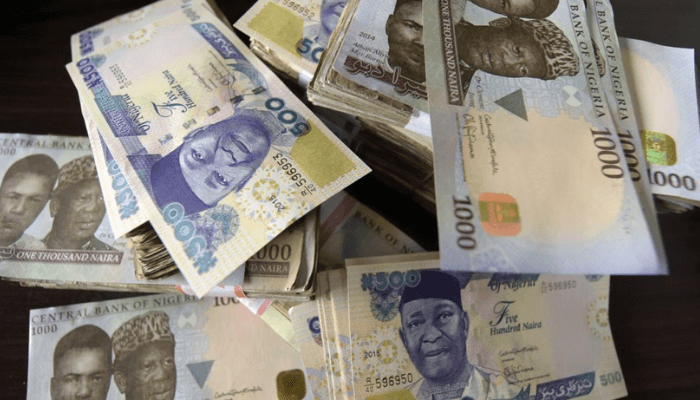Strong naira, external reserves expected on Eurobond issue
The already stabilising naira is projected to strengthen further, while Nigeria’s external reserves are expected to receive a significant boost following the Federal Government’s planned issuance of $2.3 billion Eurobond towards the end of the year.
The move, according to analysts and government officials, will enhance foreign exchange liquidity, reinforce investor confidence, and provide short-term fiscal relief even as it raises concerns about the country’s growing debt exposure.
Year-to-date, the naira has appreciated by 4.5 percent, rising to N1,475.35 per dollar as of Friday, October 17, 2025, compared to N1,541.36 quoted at the beginning of the year at the Nigerian Foreign Exchange Market (NFEM), according to data from the Central Bank of Nigeria (CBN).
Read also: Competitive naira delivers trade surplus, aids local production says Cardoso
Similarly, Nigeria’s external reserves have grown by $1.80 billion within the same period, representing a 4.4 percent increase to $42.68 billion on October 16, 2025, from $40.88 billion recorded at the start of the year.
Mohammed Sani Abdullahi, deputy governor in charge of Economic Policy at the CBN, disclosed at the just-concluded World Bank and IMF Annual Meetings that the Federal Government plans to issue Eurobonds worth about $2.3 billion later this year. He explained that the issuance would partly refinance a $1.18 billion Eurobond maturing in November while also strengthening Nigeria’s external reserves and investor confidence. “We plan to issue Eurobonds of up to about $2.3 billion, which will also help refinance the $1.18 billion Eurobond maturing in November,” he said.
Commenting on the development, Ayokunle Olubunmi, head of Financial Institutions Ratings at Agusto & Co., noted that the planned Eurobond issuance is largely to refinance maturing obligations. According to him, the issue will help moderate the impact of the due Eurobonds on external reserves and ease concerns over exchange rate stability.
Read also: Naira strengthens by N10.50 in one week on sustained FX market liquidity
Similarly, Adebowale Funmi, head of Research at Parthian Securities, said the Federal Government’s plan to issue a $2.3 billion Eurobond in November will have mixed implications for the Nigerian economy. In the short term, she explained, the inflow of funds is expected to boost Nigeria’s external reserves and support the naira by improving foreign exchange liquidity, which could help the Central Bank manage volatility in the FX market and stabilise the exchange rate. On the fiscal side, the proceeds will help finance part of the 2025 budget deficit and refinance maturing external debt obligations, thereby reducing immediate repayment pressure on government finances. It may also ease the need for heavy domestic borrowing, potentially moderating yields in the local bond market.
However, Funmi cautioned that the issuance would also add to Nigeria’s external debt stock and debt service obligations, increasing exposure to exchange rate risks. While a successful issuance could signal investor confidence and attract additional portfolio inflows, the growing reliance on Eurobonds for fiscal and debt management, she said, highlights Nigeria’s vulnerability to external shocks and its weak revenue base. In summary, she observed that the Eurobond will provide short-term fiscal and external liquidity relief but underscores the urgent need for stronger revenue mobilisation and fiscal reforms to ensure long-term debt sustainability.
Looking ahead, Abdullahi said, “We expect to approach the international capital market later this year, subject to market conditions and transaction adviser guidance. We’ll continue engaging investors to ensure the structure works well for both sides in terms of pricing and liability management.”

